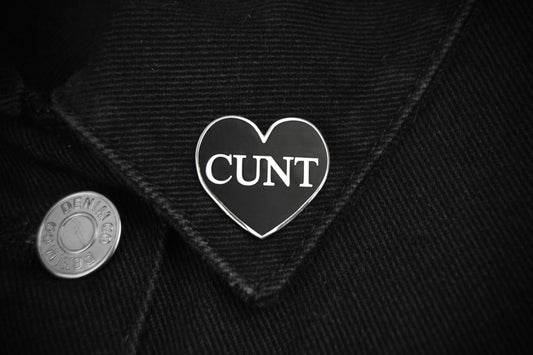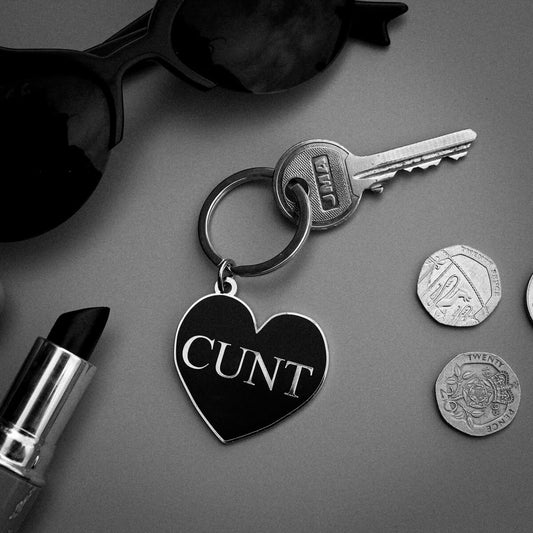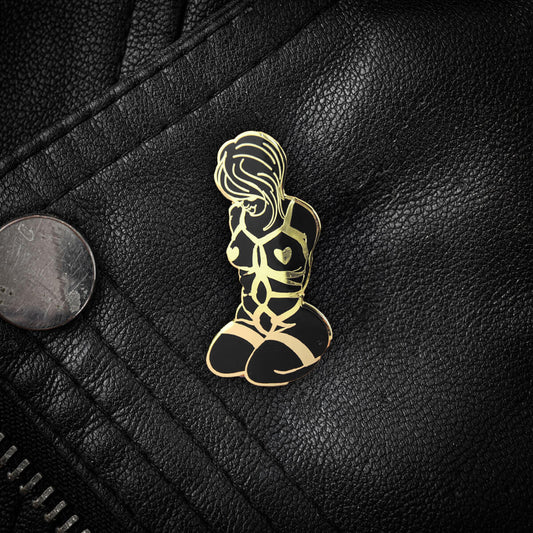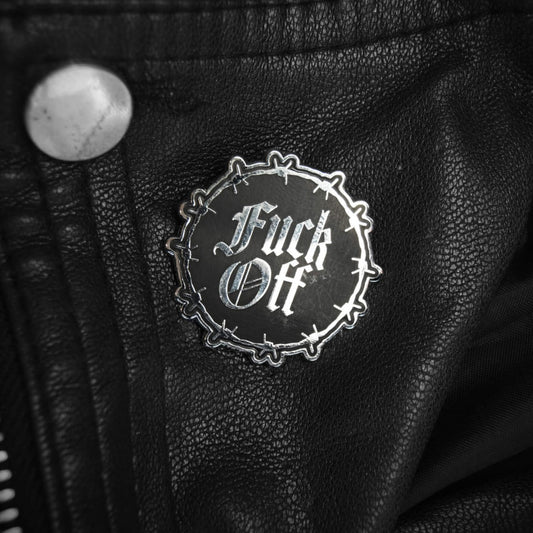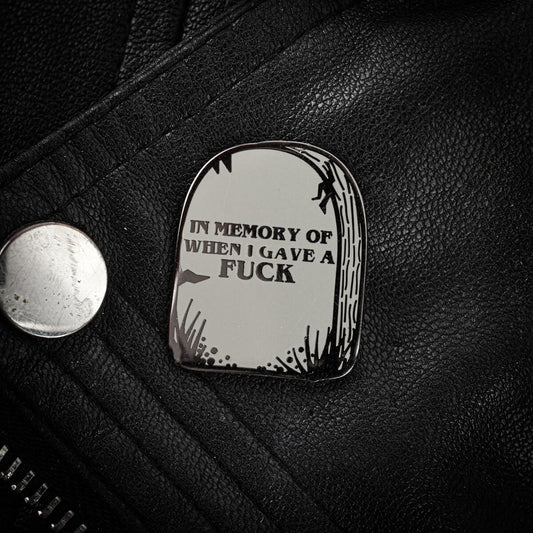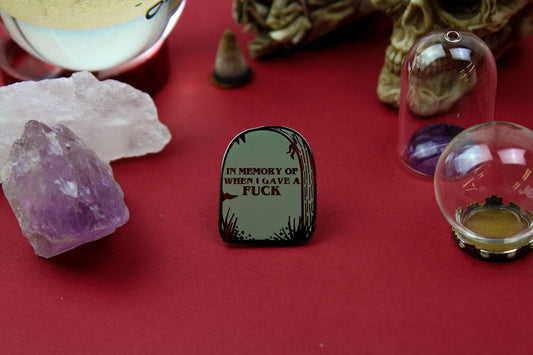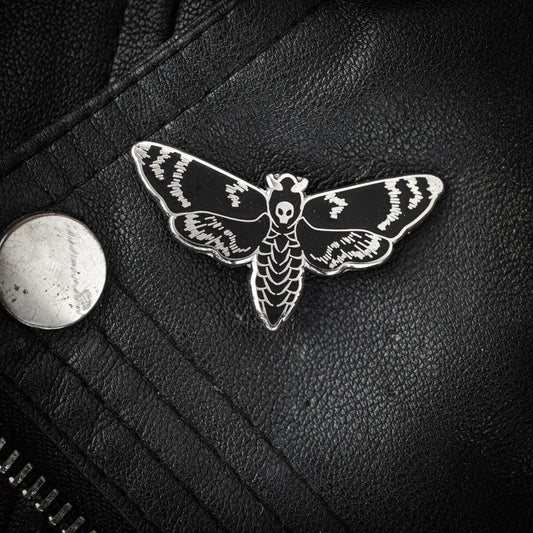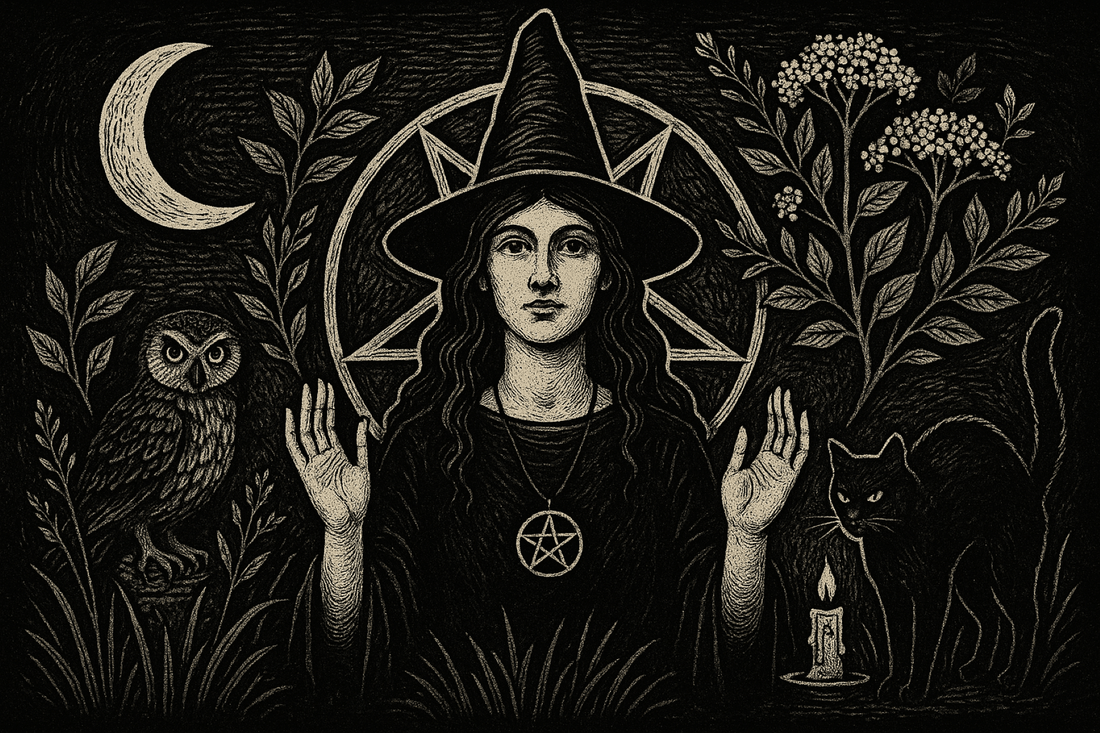
Is Wicca a Real Religion?
Share
Wicca tends to raise eyebrows. Some people lump it in with fantasy novels, crystal shops, or teen rebellion. Others think it's just a passing fad. But the question deserves a straight answer: is Wicca actually a religion?
It didn't emerge from ancient temples or holy wars. It was codified in the 20th century, and that puts some people off. They expect a religion to be old, structured, and tied to a single god or sacred text. Wicca doesn’t fit that mould.
Still, it's more than incense and moon chants. Wicca has ethics, rituals, and beliefs that guide its followers. It’s practised alone and in groups. It has festivals, deities, and a moral code. For many, it shapes how they live and think.
That should count for something. But we’ll look at the facts and decide. Is Wicca just spiritual dressing-up, or is it a full religion by every serious standard?
Key Points
- Wicca is a structured religion, not a loose set of superstitions. It has rituals, ethics, deities, and a calendar of sacred festivals.
- It meets all major definitions of religion, including those used in law, sociology, and academic theology.
- It’s legally recognised in countries like the US, UK, and Canada. Wiccans have religious rights in prisons, the military, and public life.
- Criticism usually comes from stereotypes, not facts. Pop culture, teenage association, and religious bias have all skewed how people see Wicca.
- Wiccans take their beliefs seriously. Whether solitary or part of a coven, their commitment and consistency show this is a genuine spiritual path.
What Is Wicca?
Wicca is a modern pagan religion that centres around nature, ritual, and personal responsibility. It was introduced to the public in the 1950s by Gerald Gardner, a retired British civil servant who claimed to be reviving ancient witchcraft traditions. In reality, Wicca is a blend of older folklore, ceremonial magic, and modern spiritual ideas, shaped into a working belief system during the mid-20th century.
At its core, Wicca involves the worship of a Goddess and a God, often linked to nature and seasonal cycles. It’s not rigid. Some Wiccans are polytheists, others are duotheists, and some treat the gods symbolically. What they share is a respect for nature, a focus on the turning of the seasons, and the idea that spiritual energy can be influenced through ritual.
One of Wicca’s most important ethical statements is the Wiccan Rede: “An it harm none, do what ye will.” This isn’t law in the strict sense, but it’s taken seriously. It encourages responsibility for one's actions and promotes non-harm. There’s also belief in a form of karma, often called the Threefold Law, where the energy you put out - good or bad - comes back to you three times over.
Wiccan rituals often align with lunar phases and seasonal festivals called Sabbats. These mark events like solstices, equinoxes, and harvests. Rituals might involve casting a circle, invoking deities, lighting candles, and using tools like athames (ritual knives) or chalices. None of this is random. It follows a pattern and carries meaning for those who practise it.
Not all Wiccans belong to covens. Some practise alone. There’s no central authority or global leader. That’s part of the point. Wicca values experience over dogma. Each practitioner is responsible for shaping their own understanding.
This flexibility confuses outsiders. But it's what keeps Wicca alive. It adapts without losing its spiritual backbone. That’s a sign of a living religion, not a hobby.
Photo by Halanna Halila on Unsplash
Does Wicca Meet the Definition of a Religion?
To decide if Wicca is a real religion, we have to look at what a religion actually is. Most definitions include a few common elements: belief in supernatural powers or deities, a structured set of practices, a moral or ethical code, and a community of believers. Wicca ticks every box.
It has gods - usually a Goddess and a God - though some Wiccans view these as symbolic forces rather than literal beings. It has rituals that are followed regularly, often tied to the lunar cycle or the seasons. There’s a moral code, best summed up by the Wiccan Rede: “An it harm none, do what ye will.” That’s a clear ethical guide, encouraging personal responsibility and non-harm.
Wiccans celebrate eight Sabbats throughout the year, along with rituals on full moons called Esbats. These ceremonies aren’t random. They’re meaningful, they follow structure, and they reflect core beliefs. Tools are used in specific ways. Sacred space is created. There are chants, invocations, offerings. That’s ritual practice, not make-believe.
Community is harder to pin down because Wicca is often solitary. But many Wiccans do belong to covens or attend public rituals. And even those who practise alone usually feel connected to a wider Wiccan identity. The shared symbolism, language, and seasonal calendar give it coherence.
Sociologists like Émile Durkheim defined religion as a unified system of beliefs and practices that brings people together into a moral community. By that standard, Wicca qualifies. Courts in the US and UK agree. Wicca has been legally recognised as a religion in multiple legal cases, especially in matters involving prisons, the military, and religious rights.
You don’t need a holy book or a billion followers to be a religion. What matters is structure, belief, meaning, and community. Wicca has all of these. Whether or not you like it doesn’t change the facts.
Legal and Institutional Recognition
Wicca isn’t just spiritually structured - it’s also legally recognised in several countries. That matters. If governments and institutions accept it as a religion, it carries real weight. This isn’t just about symbolism. It affects rights, protections, and public credibility.
In the United States, Wicca has been officially recognised as a religion since at least the 1980s. The landmark case Dettmer v. Landon (1986) ruled that Wicca was a legitimate religion, and that its followers were entitled to religious protections under the First Amendment. This set a clear precedent. Since then, Wiccans in US prisons have won the right to practise rituals, possess religious tools, and receive the same treatment as Christians, Muslims, or Jews.
The US military also acknowledges Wicca. Since 2007, Wiccan soldiers have been allowed to have the pentacle - a five-pointed star symbol often used in Wicca - engraved on military gravestones in national cemeteries. That change came after years of legal pressure, ending a clear case of religious discrimination. The Army Chaplain’s Handbook now even includes information on how to support Wiccan service members.
In the UK, Wicca is covered by the Equality Act 2010, which protects against religious discrimination. The Charity Commission also recognises Wiccan groups as religious charities, which means they can operate tax-free if their activities are for the public benefit. Wicca has also appeared in national census data, with thousands openly identifying as Wiccan in England and Wales.
Canada, Australia, and several European countries have also granted Wicca legal standing. In each case, the reasoning is similar: Wicca involves consistent beliefs, rituals, and spiritual goals. That’s enough to qualify.
The law doesn’t care how old your religion is, or whether it matches popular opinion. It looks at structure, sincerity, and function. Wicca passes the test. Courts and governments have accepted that Wiccans are genuine religious practitioners with the same rights as anyone else.
That makes it hard to argue that Wicca isn’t a real religion. If it’s good enough for the legal system, it should be good enough for the critics.
Why Some People Dismiss Wicca
Despite the legal recognition and structured belief system, plenty of people still scoff at Wicca. The reasons aren’t always rational. Most come down to bias, misunderstanding, or plain ignorance.
One major reason is how Wicca is portrayed in pop culture. Films and TV shows lump it in with fantasy magic, vampires, or gothic aesthetics. That’s not Wicca - it’s fiction. But the image sticks. People see crystals, candles, and pointy hats and think it’s all a game. They don’t see the actual beliefs behind the symbolism.
There’s also the association with teenage girls. Since the 1990s, Wicca has been popular among younger people, especially girls looking for something that feels empowering and different. That popularity created backlash. Anything seen as a “teen phase” gets written off as shallow or unserious. But adults of all ages practise Wicca, and many take it as seriously as any Christian or Muslim does their faith.
Then there’s religious exclusivism. Some people believe only their own religion is valid. To them, Wicca is either fake or evil. Christian fundamentalists in particular have targeted Wicca for decades, calling it satanic or accusing its followers of devil worship - even though Wicca doesn’t include Satan in its belief system at all. In fact, most Wiccans find that accusation offensive and baseless.
History also plays a role. The word “witch” carries centuries of stigma. For most of European history, being accused of witchcraft meant torture or death. That shadow still hangs over Wicca. It doesn’t matter that Wicca is peaceful and ethical - the label triggers fear in some people.
Even the religion’s age is used against it. Critics say it’s too new to count. But that argument doesn’t hold up. Every religion was new once. Sikhism, for example, was founded in the 15th century. The Church of Scientology in the 20th (although personally I don’t think that is a real religion!). Age alone doesn’t determine legitimacy.
At the root of it, most dismissal comes from not understanding what Wicca actually is. People assume instead of asking. They react to stereotypes instead of facts. But once you look at Wicca seriously - and without the Hollywood filter - it becomes much harder to laugh it off.
By User:The Wednesday Island, after en:User:Brenton.eccles - Based on en:Image:Wheel_of_the_Year.gif but redrawn, Public Domain, Link
Wiccan Communities and Practice
Wicca isn’t a one-size-fits-all religion. It’s built for flexibility. Some Wiccans join covens with formal initiations and shared rituals. Others practise solo, building their own routines around a set of core beliefs. Both approaches are valid, and both involve real religious structure.
Covens tend to follow established traditions like Gardnerian or Alexandrian Wicca. These groups often meet regularly to perform rituals, celebrate Sabbats, and train new members. They have rules, hierarchies, and shared liturgy. It’s not random or chaotic - it’s organised, sometimes rigidly so.
Solitary Wiccans, on the other hand, write their own rituals, adapt their tools, and may mix in practices from other spiritual systems. That doesn’t make them any less serious. In fact, many choose solitary practice because it gives them space to focus on their beliefs without group politics or pressure. The key thing is intent. They still observe moon cycles, honour deities, and follow the ethical code.
Ritual is a huge part of Wiccan practice. Circles are cast to mark sacred space. Deities are invoked through chants or offerings. Tools like the athame (ritual knife), wand, chalice, and pentacle are used with purpose, not decoration. These tools have symbolic roles and are treated with respect. They aren’t props - they’re part of how Wiccans connect to spiritual energy.
The Wiccan calendar follows the Wheel of the Year, made up of eight Sabbats. These include the solstices and equinoxes, as well as traditional festivals like Samhain (31 October) and Beltane (1 May). These aren’t just parties. They reflect deep spiritual themes like death, rebirth, harvest, and transformation. Celebrating them is a way to stay in tune with nature and the divine.
Esbats are rituals held during full moons, often focused on magic, healing, or reflection. Like Sabbats, they’re structured and meaningful. Even solitary Wiccans usually observe them in some form. It’s part of the rhythm of practice.
Community for Wiccans can also exist online. Many turn to forums, video calls, and virtual rituals, especially in places where local covens are rare. Social media has helped Wiccans share resources, support each other, and connect despite physical distance.
In short, Wicca offers structure without rigid conformity. The practices vary, but the core beliefs remain strong. Whether done alone or in a group, in the woods or a flat in Croydon, Wiccan ritual is still religious practice. It has rules, goals, and meaning. That’s religion in action.
How Wiccans See Themselves
If you want to know whether Wicca is a real religion, ask the people who practise it. Most Wiccans don’t hesitate. They see their beliefs as spiritual, structured, and deeply meaningful. For them, Wicca isn’t a hobby or a phase. It’s a commitment.
Surveys and personal accounts back this up. In the 2001 and 2011 UK Census, thousands of people identified as Wiccan. And that’s not a joke response! It takes effort to write in a minority faith when a drop-down list would be easier. In the US, a 2014 Pew Research study estimated that over a million people identify with some form of pagan or Wiccan belief. Those numbers aren’t massive, but they’re real - and growing.
Wiccan books, forums, and social spaces all show the same thing: people taking their religion seriously. They discuss ethics, share ritual structures, ask theological questions. Many keep personal Books of Shadows, which are handwritten records of spells, rituals, meditations, and insights. These are private, detailed, and sacred to the owner. That’s not something you do for fun on a Saturday. That’s religion.
For Wiccans, faith isn’t passive. It’s lived through action. Rituals mark personal milestones like births, deaths, handfastings (Wiccan weddings), and rites of passage. These aren’t copied from other religions. They’re built from Wicca’s own symbolic language. That includes calling the quarters, invoking deities, using elements like earth, air, fire, and water to give shape to spiritual experiences.
There’s also a strong emotional connection. Many Wiccans describe their first rituals as moments of peace, clarity, or awe. They talk about feeling part of something larger, whether that’s nature, the gods, or the rhythm of the seasons. That sense of connection is what religion does best.
Not everyone in Wicca uses the same words. Some say “spiritual path.” Others say “religion” outright. But the core experience is the same: a structured way to understand life, make meaning, and honour the sacred. That’s what defines a religion.
Wiccans don’t need outside permission to be valid. But their consistency, their commitment, and their belief in something larger all point to one conclusion: they see Wicca as real religion. And if they treat it that way, society should too.
Final Verdict: Is Wicca a Real Religion?
Yes, Wicca is a real religion by every serious standard.
It has consistent beliefs, rituals, ethics, and symbols. It offers structure for spiritual practice, whether through formal covens or solitary work. It’s recognised by courts, governments, and census data in multiple countries. Practitioners live by it, draw meaning from it, and organise their lives around it. That covers every major definition of religion used in law, sociology, and academic study.
The only reason people still ask this question is because Wicca doesn’t fit the mould of traditional Abrahamic religions. It’s decentralised, relatively new, and nature-focused. That makes it unfamiliar, not invalid.
Critics often lean on the idea that religion has to be ancient, institutional, or widely practised. But that’s just bias. Sikhism is newer than Christianity. Scientology is newer than Wicca. And no one questions the religious status of Buddhism, even though some forms don’t include a god at all.
What matters is whether a belief system provides spiritual structure, meaning, and community. Wicca does that. The rituals aren’t random. The beliefs aren’t vague. The moral code is clear. And the people practising it treat it with seriousness and purpose.
Wicca might challenge some people’s ideas of what religion is supposed to look like. But that’s a problem with the definition, not with Wicca.
So yes. It’s a real religion. And it’s time more people acknowledged that!
